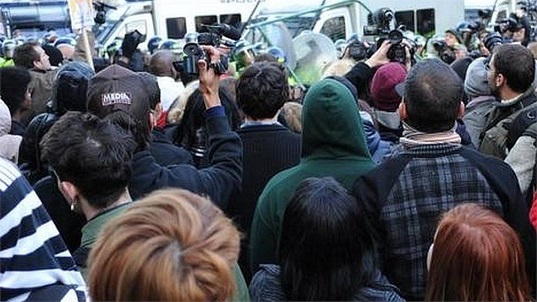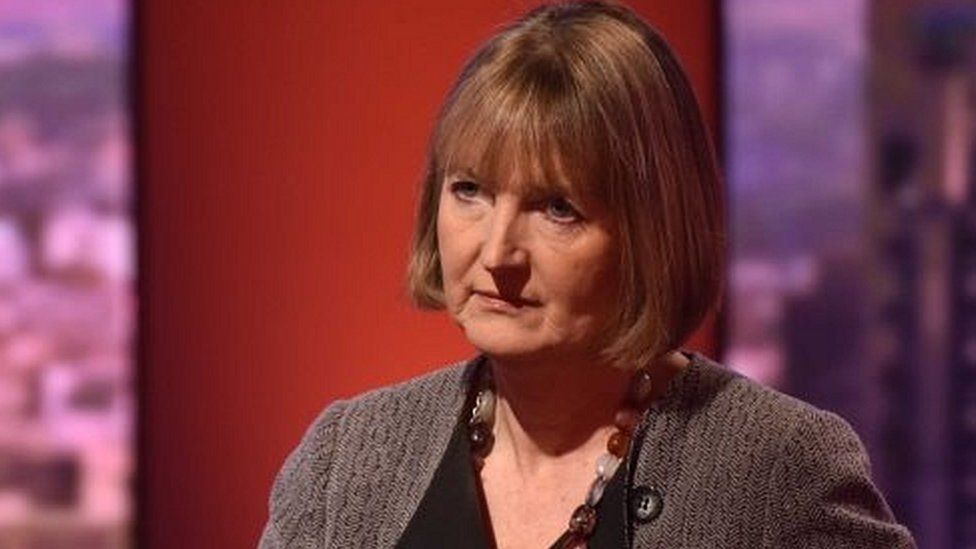
The government should drop its “disproportionate” plan to ban noisy protests in England and Wales, a parliamentary committee has warned.
The Police, Crime, Sentencing and Courts Bill would also introduce powers to deal with demonstrations involving only one person.
The Joint Committee on Human Rights said the legislation could undermine freedom of expression.
But the Home Office said it would not “impinge” on the right to protest.
Existing laws are out of date and “disruptive and dangerous tactics” have to be dealt with, a spokeswoman added.
The committee’s chairwoman, former Labour deputy leader Harriet Harman, said the plans were “oppressive and wrong”.
The bill says group protests should not be loud enough to cause “serious unease, alarm or distress” to people “in the vicinity”.
A noise limit would also apply to a single person if they caused “serious disruption” or if they “may have a relevant impact on” people nearby.
In report highly critical of the bill, the committee, which advises MPs and Peers on the compatibility of all government bills with human rights laws, called for “statutory protection” for the right to hold protests to be introduced.
It added that councils should be told to “refrain from interfering unlawfully” with them and be given “the duty to facilitate protest”.
The report also said the language used in the bill left an “excessive degree of judgement in the hands of a police officer”.
And it described the proposed limits on single-person protests as “unprecedented”.
Commenting on the plans, committee chairwoman Ms Harman said: “One of our most fundamental rights is to protest. It is the essence of our democracy.
“To do that, we need to make ourselves heard. The government proposals to allow police to restrict ‘noisy’ protests are oppressive and wrong.”

MPs have already backed the bill in principle and it is currently undergoing detailed scrutiny.
It also outlines stronger police powers to break up “unauthorised encampments” and longer sentences for people convicted of serious crimes.
The government said existing public order laws needed updating because “the use of disruptive and dangerous tactics – including obstructing emergency vehicles or blocking the free press – costs millions to the taxpayer and causes misery to businesses and local communities”.
“The right to protest is a cornerstone of our democracy,” a Home Office spokeswoman said. “Our proposed measures are in line with human rights legislation and in no way impinge on the right to protest.”
The bill would allow police to “better manage demonstrations so that legitimate protest groups can make their voices heard without disrupting the lives and livelihoods of others”, she added.

This legislation comes after repeated city centre occupations by the Extinction Rebellion movement – and last year’s toppling of the statue of a Bristol slave trader and municipal benefactor.
The committee said allowing police to set noise limits could silence lawful and peaceful chants – and the most popular demonstrations could face restrictions on duration and location, interfering with the right to assembly.
It also urges the government not to create powers to interfere with public demonstrations held by a single person and warns that a new crime of causing a public nuisance is too vague to be understood.
MPs and peers don’t need to act on the report, but the legislation has already triggered its own protests.
And there are predictions it could lead to years of legal battles all the way to the Supreme Court.
Source: bbc.co.uk






Be the first to comment